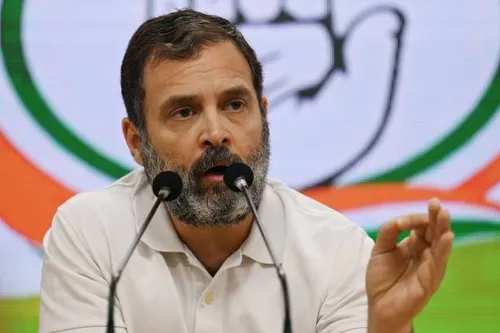
The recent all-party meeting on Bangladesh unrest, attended by Leader of the Opposition Rahul Gandhi and other prominent opposition leaders, underscores the complex geopolitical dynamics and the importance of regional stability in South Asia. The gathering aimed to address the escalating situation in Bangladesh and explore India’s role in fostering peace and stability in the region. This essay delves into the historical context of Bangladesh’s political landscape, the recent unrest, and the implications for India, culminating in the outcomes and significance of the all-party meeting.
Table of Contents
Historical Context
Bangladesh, since its independence from Pakistan in 1971, has experienced periods of political turbulence and economic challenges. The country has oscillated between military rule and democratic governance, with the two major political parties, the Awami League (AL) and the Bangladesh Nationalist Party (BNP), often at loggerheads. Sheikh Hasina of the Awami League, the current Prime Minister, has been a dominant political figure, having served multiple terms. Her tenure has seen significant economic growth but has also been marred by accusations of authoritarianism, suppression of dissent, and human rights violations.
Recent Unrest
The current unrest in Bangladesh stems from a myriad of factors, including political rivalry, economic disparities, and allegations of electoral fraud. The opposition BNP and its allies have accused the government of Sheikh Hasina of rigging the 2018 general elections and suppressing political dissent. Protests and strikes have become frequent, leading to violent clashes between opposition supporters and law enforcement agencies.
Bangladesh’s economy, heavily reliant on garment exports and remittances, has faced significant disruptions. The resulting economic hardships have fueled public discontent, with many accusing the government of failing to provide adequate support to the affected populations.
Implications for India
India shares a long and porous border with Bangladesh, making it directly susceptible to any instability in its neighbor. The historical, cultural, and economic ties between the two countries add layers of complexity to their relationship. India has been a key ally of Bangladesh, providing economic aid, military support, and playing a crucial role in its liberation war in 1971.
However, the recent unrest poses several challenges for India. Firstly, there is the concern of a potential influx of refugees into the bordering states of West Bengal, Assam, and Tripura. These states already grapple with their socio-economic issues and an added burden of refugees could exacerbate tensions. Secondly, the instability could disrupt trade and economic cooperation between the two countries. India is one of the largest trading partners of Bangladesh, and any disruption could have adverse effects on both economies.
Furthermore, the geopolitical landscape in South Asia is sensitive, with China seeking to expand its influence in the region. Bangladesh is a participant in China’s Belt and Road Initiative (BRI), and any instability could provide China with an opportunity to strengthen its foothold, potentially at the expense of India’s strategic interests.
The All-Party Meeting
In light of these concerns, the all-party meeting convened by the Indian government was a significant step towards formulating a cohesive and comprehensive response to the crisis in Bangladesh. The meeting, attended by leaders from various political parties, including Rahul Gandhi from the Indian National Congress, aimed to foster a bipartisan approach to the issue.
The discussions highlighted several key points:
- Diplomatic Engagement: The consensus was on the need for proactive diplomatic engagement with Bangladesh. India should leverage its historical ties and diplomatic channels to urge for a peaceful resolution to the unrest. Emphasis was placed on supporting democratic processes and encouraging dialogue between the Bangladeshi government and opposition parties.
- Humanitarian Assistance: The meeting underscored the importance of providing humanitarian assistance to Bangladesh, especially in terms of medical aid and economic support. This not only serves the immediate needs of the affected populations but also reinforces India’s role as a benevolent neighbor.
- Border Security: Strengthening border security to manage potential refugee inflows and prevent any cross-border terrorist activities was a critical point of discussion. The need for cooperation between central and state governments in managing border security was emphasized.
- Economic Cooperation: The leaders discussed ways to ensure that economic cooperation between India and Bangladesh remains unaffected. This includes exploring avenues for increased trade, investment, and joint ventures that can help stabilize the Bangladeshi economy.
- Regional Stability: The importance of regional stability for the broader South Asian context was highlighted. The leaders agreed that a stable Bangladesh is crucial for the security and prosperity of the entire region.
Significance and Conclusion
The all-party meeting on Bangladesh unrest signifies India’s commitment to regional stability and its proactive approach to addressing geopolitical challenges. The bipartisan nature of the meeting highlights the recognition of the issue’s importance beyond political affiliations. By fostering a unified response, India aims to not only stabilize Bangladesh but also safeguard its own strategic interests.
In conclusion, the unrest in Bangladesh presents significant challenges and opportunities for India. The all-party meeting, attended by Rahul Gandhi and other opposition leaders, represents a crucial step in addressing these challenges. Through diplomatic engagement, humanitarian assistance, strengthened border security, and continued economic cooperation, India can play a pivotal role in restoring peace and stability in Bangladesh, thereby ensuring regional stability in South Asia.







